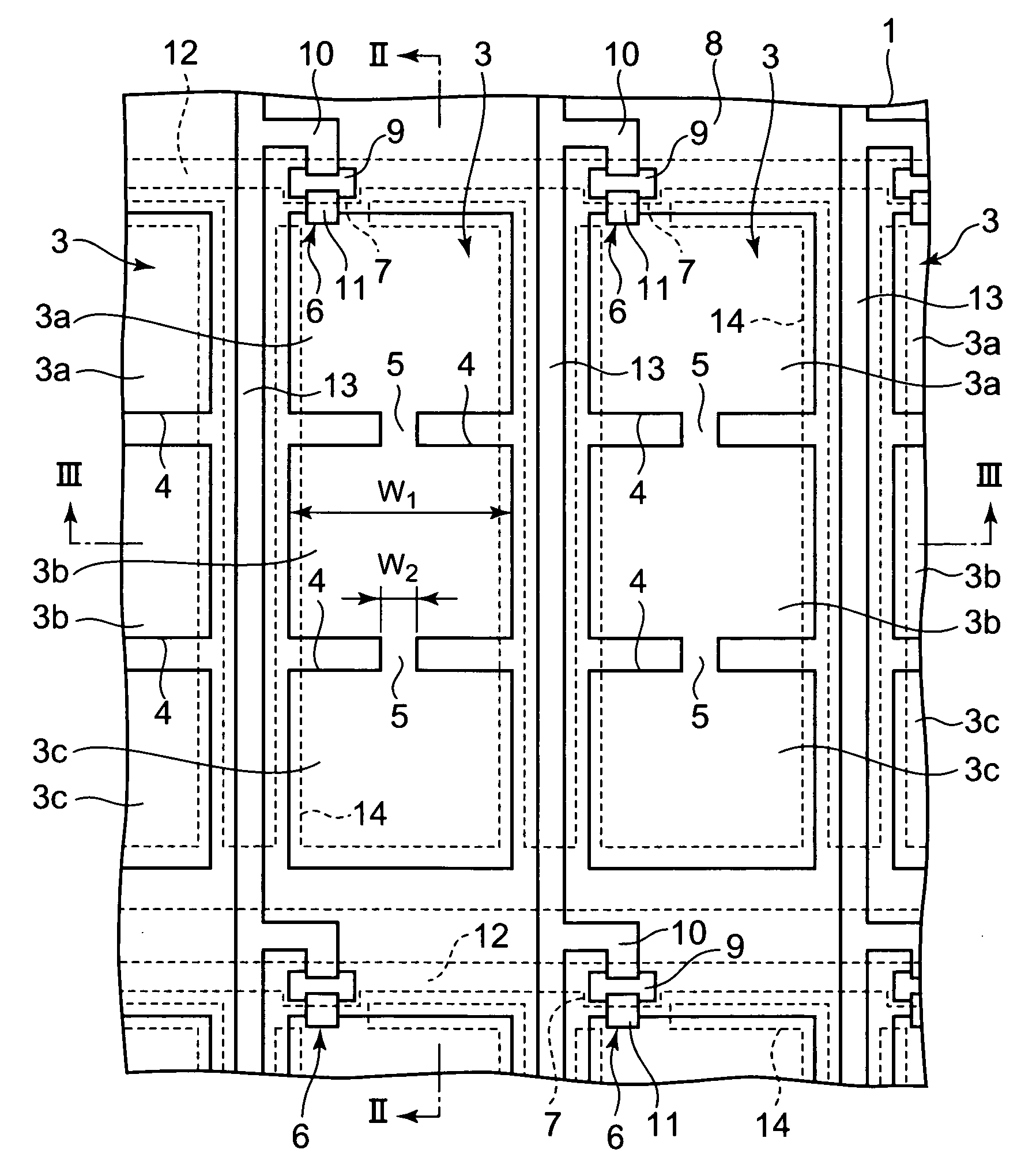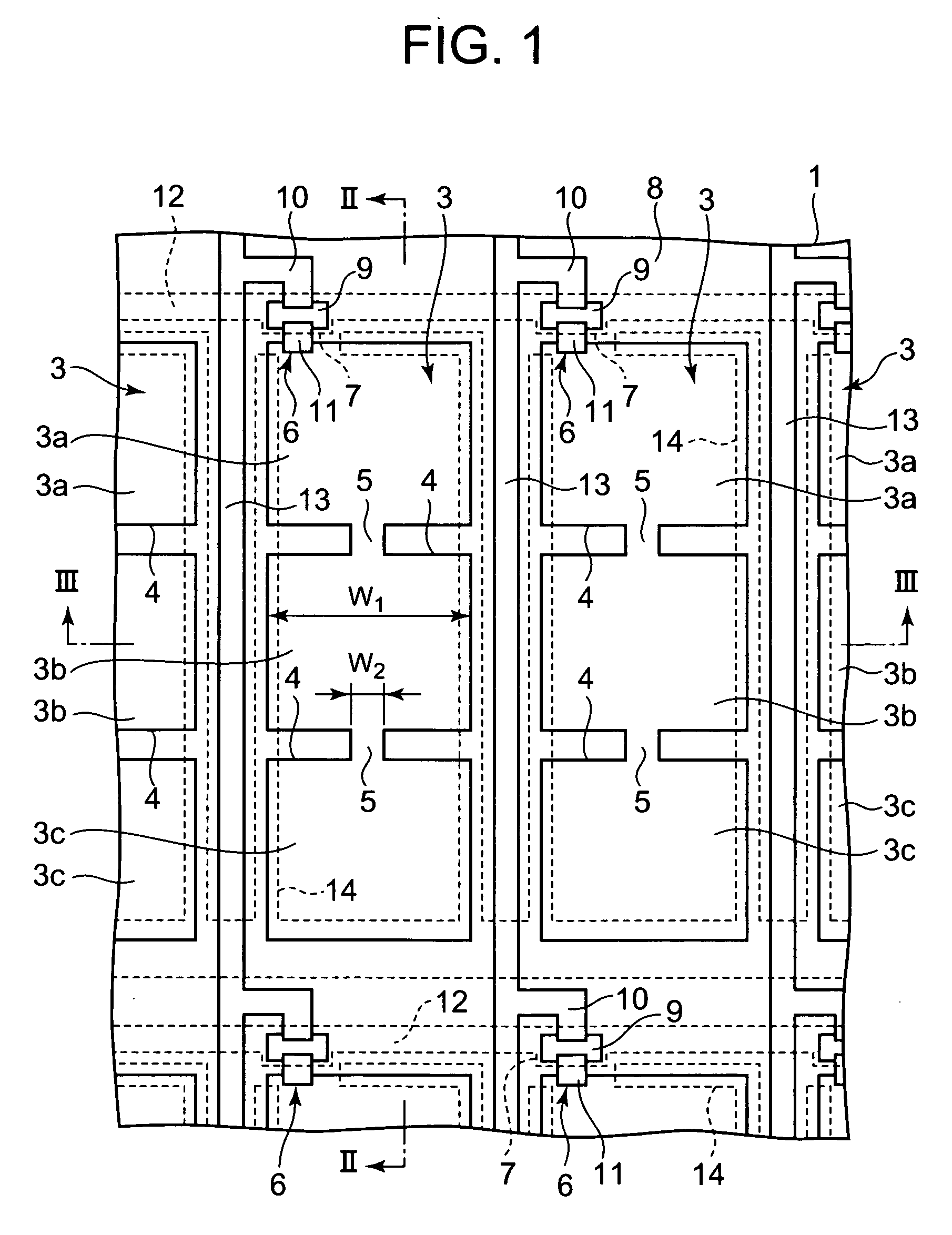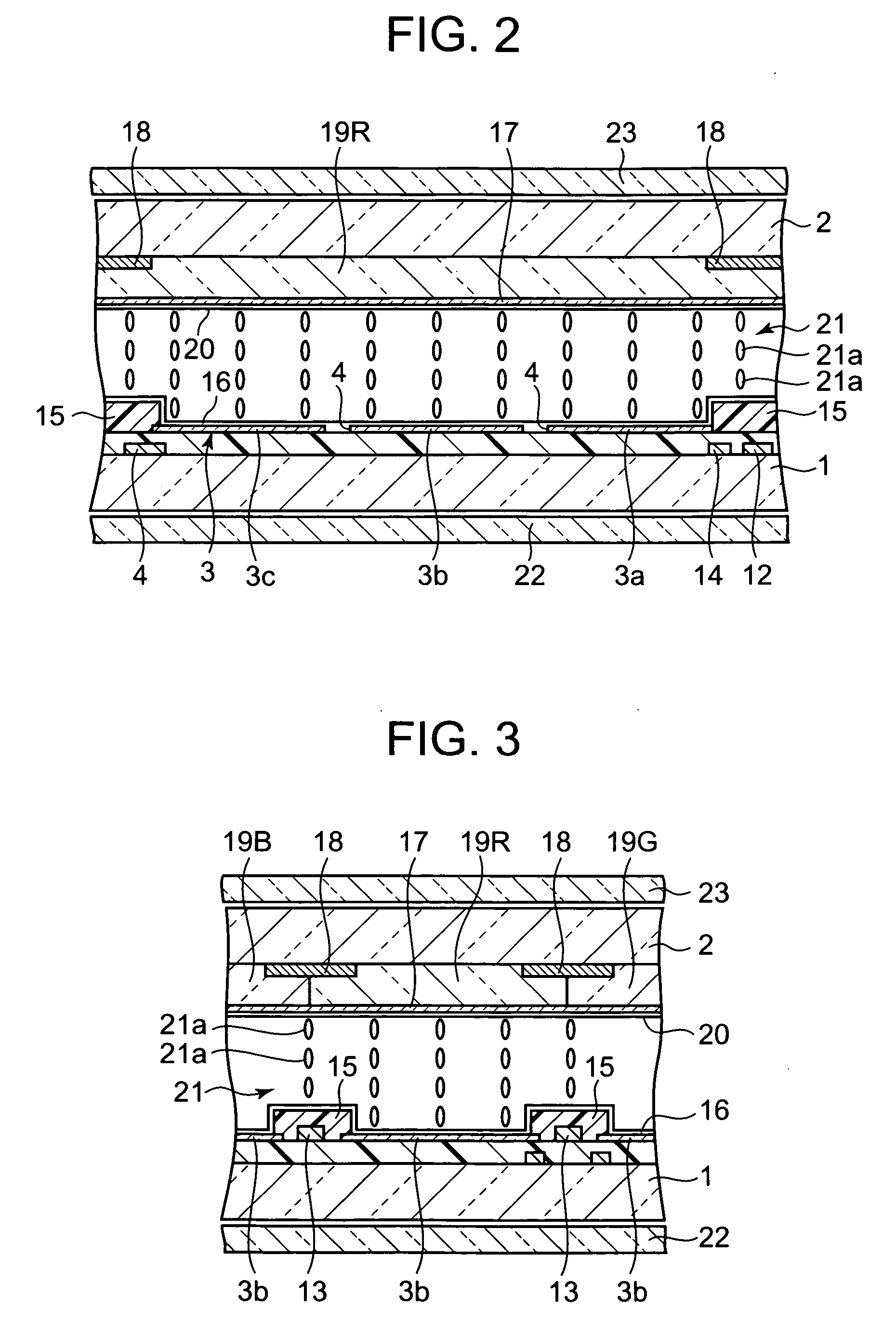Vertical alignment liquid crystal display device
- Summary
- Abstract
- Description
- Claims
- Application Information
AI Technical Summary
Benefits of technology
Problems solved by technology
Method used
Image
Examples
first embodiment
[0063]FIG. 1 to FIG. 4 show the first embodiment of the present invention, where FIG. 1 is a plan view of a liquid crystal display device showing one part of a substrate on which pixel electrodes are formed, and FIG. 2 and FIG. 3 are cross sections of the liquid crystal display device of FIG. 1, as cut along the line II-II and the line III-III respectively.
[0064] The liquid crystal display device is a vertical alignment active matrix liquid crystal display device, and comprises a pair of transparent substrates 1 and 2 opposite to each other with a predetermined gap therebetween as shown in FIG. 1 to FIG. 3. At least one transparent opposing electrode 17 is formed on the inner surface of one substrate of the opposing inner surfaces of the pair of substrates 1 and 2, for example, on the inner surface of the substrate 2 on the viewer side (hereinafter referred to as front substrate). Formed on the inner surface of the other substrate of the opposing inner surfaces of the pair of subst...
second embodiment
[0089]FIG. 5 is a plan view of one part of one substrate of a liquid crystal display device as the second embodiment of the present invention. In the present embodiment, the components same as those in the first embodiment will be given the same reference numerals, and explanation for such components will be omitted.
[0090] The liquid crystal display device according to the present embodiment is structured as follows: the plurality of pixel electrodes 3 are formed in an elongated shape having shorter sides in the row direction and longer sides in the column direction; the source electrode 11 of each TFT 6 is connected to one end of one shorter side of each of the plurality of pixel electrodes 3; the pixel electrodes 3 are each provided with slits 41 which separate the pixel electrode 3 into a plurality of, for example, three electrode portions 3a, 3b, and 3c which are arranged side by side in the direction of the longer side; and connecting portions 51 at which the electrode portion...
third embodiment
[0101]FIG. 7 is a plan view of one pixel on one substrate of a liquid crystal display device as the third embodiment of the present invention. In the present embodiment, the components same as those in the first and second embodiments will be given the same reference numerals, and explanation for such components will be omitted.
[0102] The liquid crystal display device according to the present embodiment is structured as follows; the pixel electrode 3 having an elongated shape is provided with a plurality of slits 42 which separate the pixel electrode 3 into three or more (three according to the present embodiment) electrode portions 3a, 3b, and 3c which are arranged side by side in the direction of the longer side of the pixel electrode 3; a connecting portion 52 at which, of the electrode portions 3a, 3b, and 3c of the pixel electrode 3, the electrode portion 3a to which the TFT 6 is connected and the electrode portion 3b adjoining the electrode portion 3a are connected with each ...
PUM
| Property | Measurement | Unit |
|---|---|---|
| Width | aaaaa | aaaaa |
| Dielectric anisotropy | aaaaa | aaaaa |
| Shape | aaaaa | aaaaa |
Abstract
Description
Claims
Application Information
 Login to View More
Login to View More - R&D
- Intellectual Property
- Life Sciences
- Materials
- Tech Scout
- Unparalleled Data Quality
- Higher Quality Content
- 60% Fewer Hallucinations
Browse by: Latest US Patents, China's latest patents, Technical Efficacy Thesaurus, Application Domain, Technology Topic, Popular Technical Reports.
© 2025 PatSnap. All rights reserved.Legal|Privacy policy|Modern Slavery Act Transparency Statement|Sitemap|About US| Contact US: help@patsnap.com



